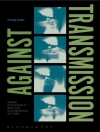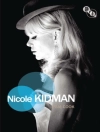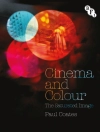What is the child for Latin American cinema? This book aims to answer that question, tracing the common tendencies of the representation of the child in the cinema of Latin American countries, and demonstrating the place of the child in the movements, genres and styles that have defined that cinema. Deborah Martin combines theoretical readings of the child in cinema and culture, with discussions of the place of the child in specific national, regional and political contexts, ...
What is the child for Latin American cinema? This book aims to answer that question, tracing the common tendencies of the representation of the child in the cinema of Latin American countries, and demonstrating the place of the child in the movements, genres and styles that have defined that cinema. Deborah Martin combines theoretical readings of the child in cinema and culture, with discussions of the place of the child in specific national, regional and political contexts, to develop in-depth analyses and establish regional comparisons and trends. She pays particular attention to the narrative and stylistic techniques at play in the creation of the child’s perspective, and to ways in which the presence of the child precipitates experiments with film aesthetics.
Bringing together fresh readings of well-known films with attention to a range of little-studied works, The Child in Contemporary Latin American Cinema examines films from the recent and contemporary period, focussing on topics such as the death of the child in ‘street child’ films, the role of the child in post-dictatorship filmmaking and the use of child characters to challenge gender and sexual ideologies. The book also aims to place those analyses in a historical context, tracing links with important precursors, and paying attention to the legacy of the child’s figuring in the mid-century movements of melodrama and the New Latin American Cinema.












